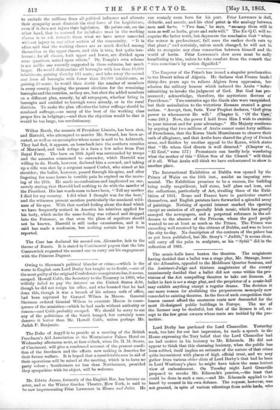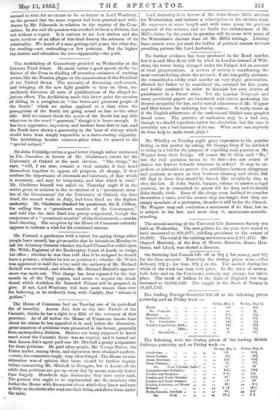Lord Derby has pardoned the Lord Chancellor. Yesterday week, too
late for our last impression, he made a speech in the House expressing the Tory belief that the Lord Chancellor had no bad motive in his leniency to Mr. Edmunds. He did not appear to think that this charming leniency, when the public has been robbed, itself implies an estimate of the nature of that crime quite inconsistent with places of high official trust, and we may gather from various obiter dkta of Lord Derby's that had he been in Lord Westbury's place he might have taken the same lenient view of embezzlement. On Tuesday night Lord Granville proposed to revoke Mr. Edmunds's pension,—the least that could be done in such a case,—and Mr. Edmunds applied to be heard by counsel in his own defence. The request, however, was not granted, in spite of various relentings from noble lords, who seemed to wish for an excuse to be as lenient as Lord Westbury, on the ground that the same request had been granted and with- -drawn by Mr. Edmtuide in relation to the inquiry of the Com- mittee. In the end the pension was revoked without a division, but not without a regret. It is curious to see how station and the mere incidents of an affair of this kind destroy the estimate of its -criminality. We heard of a man getting eight years, the other day, for stealing—not embezzling—a few potatoes. But the higher the station and education the less—apparently—the guilt.































 Previous page
Previous page